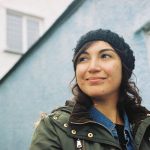Awards and Testimonials
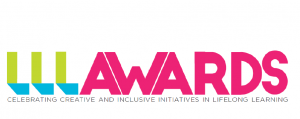
Lifelong Learning Award, by LLL Platform
In 2016, among the three winners of the Lifelong Learning Award was Balkans, let’s get up! Programme. The Award is presented annually by Lifelong Learning Platform, an umbrella that gathers 40 European organisations active in the field of education, training and youth. The programme was awarded for its “creative and inclusive practices” in the field of formal, non-formal and informal learning.
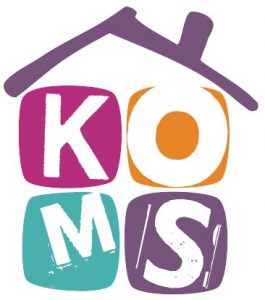
Outstanding Contribution to the Participation and Engagement of Youth through International Cooperation
Also in 2016, National Youth Council of Serbia awarded Balkans, let’s get up! as a best practice example of supporting active participation and cooperation of youth in the Balkan Region. In presenting the award, the emphasis was placed on the aspects of building peace and dialogue while putting forward the young people as the leaders of positive changes.

Youth Democracy Award, by the German Federal Agency for Citizenship Education
German Federal Agency for Citizenship Education presented Balkans, let’s get up! Programme with the Youth Democracy Award in 2010 for its innovative aspect in the field of civic education and youth empowerment.
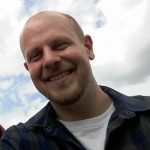
Tomislav Kevo HRV, 2010
“Everything was new and exciting. Somehow it was complete and well organized. That was huge step out of comfort zone and I did many things for the first time: I traveled alone to another country, met people from neighboring countries, participated in event which last for couple of days, put into position to critically reflect on my beliefs and attitudes, etc. It was a good balance between knowledge and obligations: it was motivating experience and I am glad for the possibility to prove yourself and to show what you can do. It was also interesting to see how others see Croatians. We all have this prejudice towards others and it was interesting to see how similar we are. All in all, BLGU! is for me a memory which i cherish a lot!”
Emina Frljak BIH, 2014
“I think I really lacked self-confidence for public talks and taking initiative. Doing the project made me realize that I’m capable enough, smart enough, and that I can deal with stress that comes with it. I figured out that I have skills to speak in front of the group, I can share responsibility for learning with participants and I’m actually good at it.”
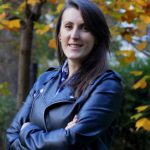
Jelena Jovanović MNE, 2014
“It was a life changing experience. I got over my fear of public speech and gained so much self-confidence.”
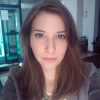
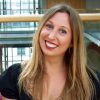
Katarina Manojlović SRB, 2013
“BLGU! is the life-changing opportunity which l whish that every young person in the Balkans could seize. It has been important for both my personal and professional development. The project management skills I gained through this program are helping me to successfully deal with complex and challenging tasks at my current job. What l appreciate the most is the commitment of the BLGU! family to the continuous improvement of the quality of the program and fostering of the alumni activities and participant-network, which is a real treasure to me.”
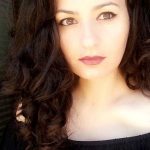
Ulpiana Maloku KOS 2013
“The BLGU! experience made me stronger and made me appreciate more the ideas of others even though they sometimes may be different from mines. I faced difficulties and saw that things aren’t always meant to go like in paper. But those difficulties brought me benefits in the sense of learning and growing. And the most important thing besides all for me is the long-lasting friendship with others. And I thank BLGU! for that.”
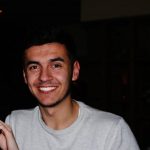
Amar Alikadić BIH, 2014
“BLGU! is one of the things I am most proud of. Having acquaintances and friendships from all over the Balkans is certainly a thing to be proud of. One thing that I am even more proud of is that one year in the BLGU! program helped me change from a wild teenager to a young man aware of all the problems, but also the values found in our societies.
I became aware how diversity is valuable and that every change starts with an idea and will. Not only did I develop as a person, but also it helped me to pave the way towards a successful life as a person that will change the world.”
Tamara Žganec HRV, 2011
“I felt powerful and important. I started thinking that you don’t have to be part of the system to be important and you can be young and able to do something meaningful. I realized there are other ways of doing things than just our “Balkan way”.
Program “raised” me. I was 19 when I got involved and I had no idea what the hell is going on. It took me maybe even few years after this experience to fully understand what it meant for me. It was the first time I experienced non-formal education and spoke in English. I learnt many things – the way I communicate: with respect to everyone regardless of their position is something I learn from BLGU! and I bring it with me in other places where I work.
It opened the doors for me in this new world, I got active and this motivated me to keep my involvement. Now I try to share this experience to others, because I believe it has potential for them to be affected the way I was.”

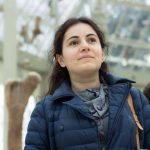
Anisa Proda ALB, 2013
“What i appreciate the most was real life communication with people and exchange, until then I understood I did not know much about things I was just reading in the books. I learned a lot from this experience and I also made several friends. In a way people came with the intention to learn, and not just to participate on another seminar.
I also learned that I could resist within multicultural settings and I that am open to different mentalities. I could explain my needs clearly and do not let others to guess or assume, if someone has the will to accommodate me. I changed my beliefs about boundaries which are never reached, and also people which I do not categorize in groups but treat them more like individuals, because I have seen that the people represent themselves, even though they are influenced by the surroundings.”
Dimitra Drakaki GRC, 2014
“I saw Greek people in a different way, and the way they interact with foreigners and neighboring countries. Greece excludes others by choice, “it’s West and not Balkans”. That is how Greece sees itself, as it’s not the part of the region culturally and politically. The idea what is Balkan, and what is not-Balkan was influenced. I reaffirmed some ideas about prejudice, I realized how closed-minded you can be without realizing it. There was a common identity I did not feel the part of.”
